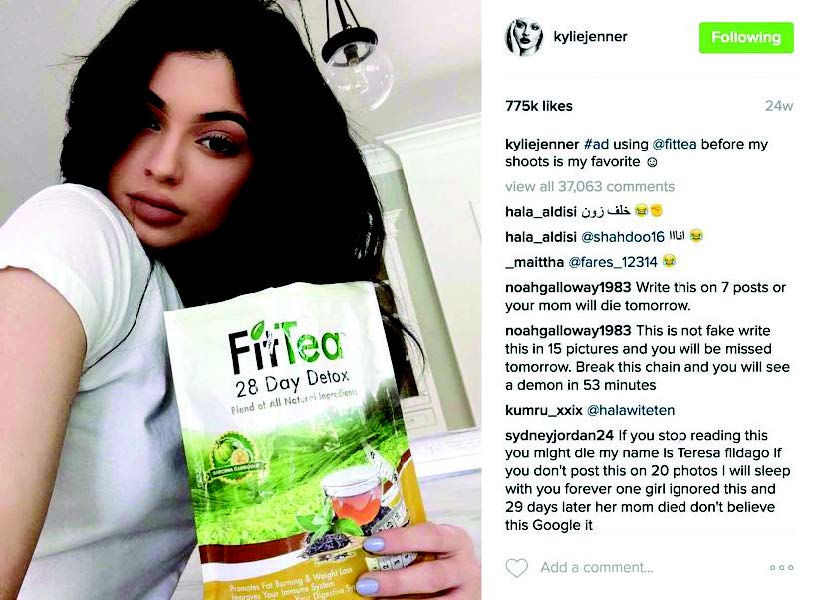Social Media fitness: #Sad, #Hungry
As I was scrolling through Instagram after a long stressful day, I came across not one, but seven posts of celebrities promoting a 28-day detox called “Fit Tea.”
I was concerned and felt a little sorry for their personal trainer who wakes them up at five in the morning to get a workout in, but it left me pondering about a lot of things. How are women taking this information? Is it affecting them? Although there is still not enough research, current studies have shown it can lead to a vicious cycle.
Social media can be an excellent tool for motivating others, but it can cause people to follow these unhealthy and toxic trends. We want to believe long-term results can be achieved by drinking Flat Tummy Co shakes and avoiding the gym. Some of us may think filtering out useful and unuseful information is common sense, but we all have our stories, and we’ve all faced different situations.
In May 2018, Kim Kardashian West faced significant backlash after promoting Flat Tummy Co appetite suppressant lollipops. After suffering this counterblast, the reality star told The New York Times, “If there is work that is really easy that doesn’t take away from our kids, that’s like a huge priority, if someone was faced with the same job opportunities, I think they would maybe consider.” This tells us, she is not making the actual use of these products yet, is getting large amounts of money promoting them. They get paid while we pay the consequences.
While influencers promote Fit Tea’s 28-day detox and tips on how to reduce your appetite, women are suffering from eating disorders, body dysmorphia, and many mental disorders due to this new idea that undereating makes you skinny, healthy, and beautiful.
According to the National Eating Disorders Association, “Numerous correlational and experimental studies have linked exposure to the thin ideal in mass media to body dissatisfaction, internalization of the thin ideal, and disordered eating among women.”
One HCC student shared, “Oh! The things money can do. I’m broke and would still rather stay broke than pretend a lollipop full of unhealthy sugars is what is making me lose weight.”
Another student who is into fitness and health stated, “Our goal should be to motivate others to not only love themselves but to understand that restricting yourself to foods and limiting your food intake is not healthy. Your body needs fuel, and if you don’t give it that fuel, it won’t function.” She added, “I believe we should start to focus on ourselves, our thoughts, our love for life and others. That’s when changes start to happen. We are focusing on loving our bodies when, in reality, we have to love ourselves first to love our body image.”
Even if we can’t stop these toxic promotions, we can help the people affected. Little by little, we can help young adults realize how self-love is the greatest middle finger of all time.












Alexaundreia Knox • Sep 9, 2021 at 9:06 pm
This was a great and insightful story Wanda. Bringing awareness to all people about the unhealthy habits of suppressing your diet by detoxing for 28 days, consuming sugar filled lollipops, and more is very dangerous to one’s health. Partaking in on these unhealthy habits lead to many eating disorders such as bulimia and anorexia, as well body dysmorphia, and mental illnesses. I do agree, as a society it is best to uplift and motivate everyone to first love themselves no matter what and improve on leading a healthy lifestyle that will not be detrimental to one’s health.